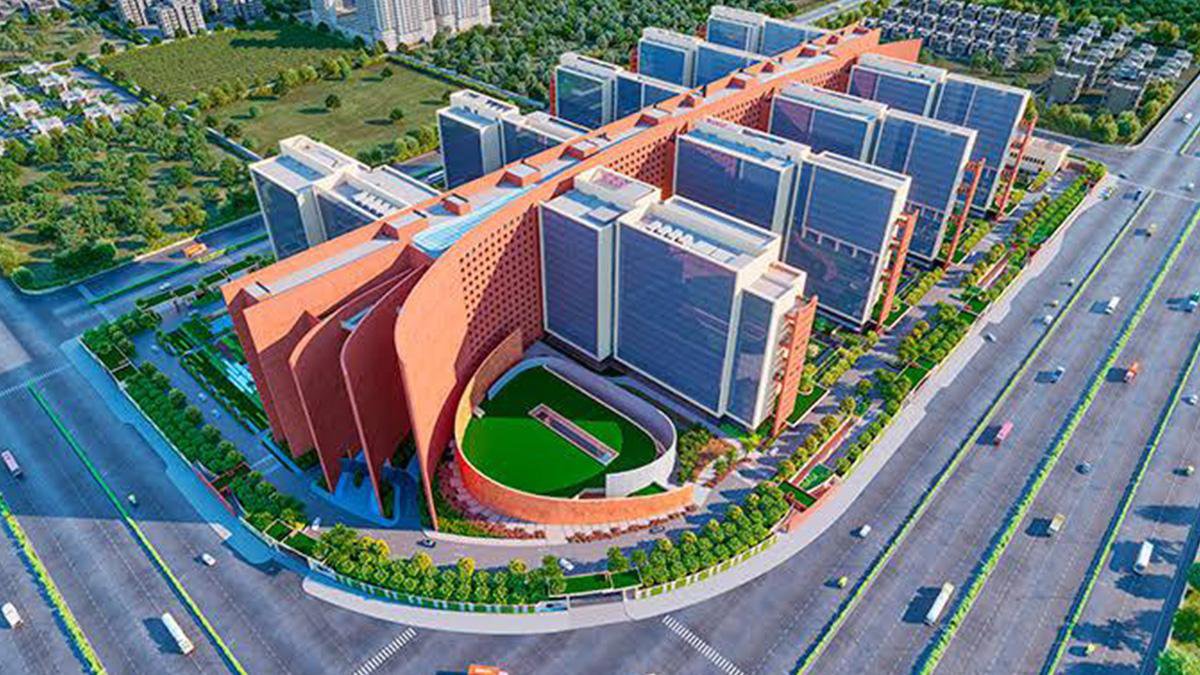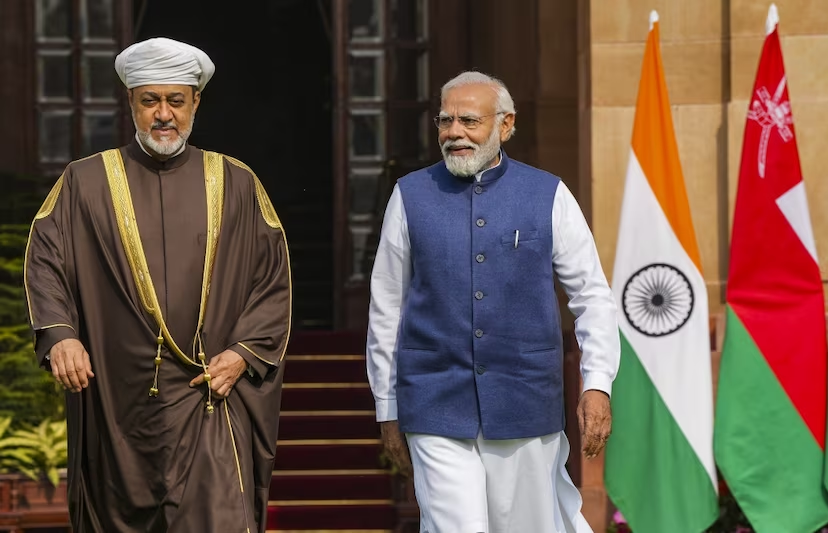
18-12-2023 (Important News Clippings)
To Download Click Here.
 Date:18-12-23
Date:18-12-23
Sparkling Facts
Surat’s new diamond bourse is a shiny demonstration of an Indian success story.
TOI Editorials

Shiny Surat | The Gujarat city has always been pivotal to the global diamond supply chain; 9 of 10 diamonds globally have a stopover in India for processing. The bourse should pit India to being a global hub for all things diamond. This is much-needed at a time when exports have seen a slump in the glare of geopolitics – like G7’s restrictions and ban on Russia-sourced gems.
Diamonds move quiet | The sheer scale of the Gujarat base also shows how understated the business has been. Indian leadership in diamonds is often glossed over when talking about the country’s global successes. Yet, in the last decades, it is Indian diamond-dealing communities – a tight-knit ecosystem of family and kin across continents – that have taken much control of trading hubs, not least the Antwerp diamond district.
Losing some shine | Sliding demand in affluent markets including China has meant a slump in exports. So much so that Indian diamantaires have revised their financing from banks by a third – from $6 billion in fiscal 2023 to $4 billion this year. The price of certain categories of solitaires slid some 35% between January and Diwali. Diamond traders also stopped imports for two months, opting to clear inventories.
Home-grown glitter | The industry anticipates some of the slump will be offset by Indians shifting to diamond jewelry – potentially 20% of the market. The Surat shebang is all set to make the business sparkle some more.
Date:18-12-23
Viksit, The Denmark Way
For India to become a developed country, rule of law, strong state and democratic accountability are key ingredients. And high growth must spread material prosperity.
Duvvuri Subbarao, [ The writer is former governor of RBI. ]
PM Modi has set a national aspiration that India must become a developed nation by the time of the centenary of Independence in 2047. The Niti Aayog is said to be working on a roadmap towards that end. Will that roadmap “get us to Denmark”?
The Denmark goal | Get us to Denmark? It’s a phrase popularised by Francis Fukuyama to describe the challenge of developing countries in transforming into developed countries. By ‘Denmark’, he meant less the actual Scandinavian country than an imagined society that is prosperous, democratic and secure, and has good governance and low levels of corruption.
Three pillars | So, what does getting to Denmark involve? A country has of course to be rich but that is not sufficient. The people also need to enjoy a decent quality of life which requires a wellordered society resting on three building blocks – the rule of law, a strong state and democratic accountability.
Equality before law | The thrust of the ‘rule of law’ is that laws apply equally to everyone. This means that anyone who breaks the law, no matter how powerful or influential, will get caught and be punished. This also means that the public will be protected from the tyranny of the state. This is important because as Thomas Jefferson said while framing the US Constitution, governments are made up of imperfect people who tend to abuse power. The rule of law should act as a check on that.
A state that delivers |The rule of law does not operate in a vacuum; it needs to be accompanied by a strong state. A strong state does not mean an authoritarian state that rules with an iron fist. Instead, a strong state is one that deploys sovereign power to make and enforce rules and to deliver public goods like safety, education and health, and merit goods like gender empowerment and financial inclusion.
Democratic accountability | A strong state fulfilling all its obligations will still fall short of getting to Denmark if the government is not accountable. It’s not enough that people get to vote periodically in free and fair elections; in between elections, there should be mechanisms for people to hold both elected officials as well as the bureaucracy to account for good governance. An independent media and impartial judiciary therefore become key elements of democratic accountability.
Sequence is key | The sequence in which the three building blocks appear influences the route to Denmark. A comparison of China and India in this regard is interesting. China has historically had a strong state which enforced rules, and in recent decades delivered high growth, but the quality of that growth has been eroded by the absence of the rule of law and democracy. India, in contrast, became a democracy even as state capacity and institutional resilience were still weak.
This points to where we must focus in order to get to Denmark.
Not just elections | Democracy is enriched by the freedom to differ and dissent. Although in popular parlance we tend to conflate them, democracy does not automatically guarantee freedom. It’s possible to have political democracy characterised by regular elections and a representative government without a liberal regime of freedoms including freedom of speech, assembly and religion.
Ties that bind | Individual freedoms cannot be enforced without social cohesion. Social cohesion can be captured in a phrase that we are familiar with – unity in diversity. The idea is that people, irrespective of their individual beliefs and interests, acknowledge a shared national identity and collective national interest.
A grand bargain | Social cohesion is a neat idea in theory but can be difficult in practice as we have discovered ourselves over the last 75 years since Independence. It calls for a delicate balance between giving people freedom to decide how they live and what they believe in while at the same time enjoining them to subscribe to a national identity and belief system. This calls for a grand bargain between the state and the people about where the state should be accommodative and where the people must yield.
Ensure bottom-up growth | Finally, and self-evidently, a country cannot get to Denmark without widely shared prosperity. Mere growth will not do. We know from experience that in the absence of any explicit action, the benefits of growth actually trickle up. In other words, the rich benefit disproportionately more which actually widens inequalities. What we need are explicit policies to make the exact opposite happen – ensure that the benefits of growth flow disproportionately more to the low-income segments.
Solve jobs puzzle | There is no one single or simple policy to tackle inequality; it needs a multipronged approach. One big area that certainly needs attention is generating employment. Earlier this year when we surpassed China to become the most populous country on the planet, there was much talk of the demographic dividend we will enjoy. But a demographic dividend is not inevitable. It will materialise if and only if India is able to generate jobs for the millions of youth who are flooding the labour market.
India’s journey to Denmark will not be easy but it’s not insurmountable. What is clear is that we need to focus not just on the quantum of growth but also on its quality.
निजी निवेश का महत्व समझते राज्य
डा. सुरजीत सिंह, ( लेखक अर्थशास्त्री हैं )
पिछले दिनों उत्तराखंड में वैश्विक निवेशक सम्मेलन का आयोजन किया गया, जिसका उद्देश्य राज्य की आर्थिक क्षमता को बढ़ाने के लिए निवेशकों को आकर्षित करना था। उसमें विभिन्न योजनाओं से संबंधित 44 हजार करोड़ रुपये के निवेश प्रस्तावों पर हस्ताक्षर किए गए। उसके बाद बिहार में भी दो दिवसीय निवेशक सम्मेलन हुआ। उसमें तीन सौ से अधिक उद्यमियों ने राज्य में 50 हजार करोड़ रुपये से अधिक के निवेश की इच्छा प्रकट की। यदि इन प्रस्तावों को वास्तविक रूप से धरातल पर उतारा जाए तो दोनों राज्य आर्थिक प्रगति और विकास के नए आयाम स्थापित कर सकते हैं। निवेश किसी भी अर्थव्यवस्था के लिए वृद्धि और विकास के प्रमुख उत्प्रेरक के रूप में कार्य करता है। निवेशक सम्मेलन राज्य के लिए रोजगार के अवसर सृजित करने के साथ विभिन्न परियोजनाओं को पूरा करने में भी मदद करते हैं। इससे न केवल कर राजस्व बढ़ता है, बल्कि राज्य के लोगों को भी व्यवसाय के लिए बेहतर माहौल मिलता है। राज्य की संस्कृति, खानपान और विविधीकरण को वैश्विक स्तर पर पहचान मिलती है। निवेश के गुणक प्रभाव से उस राज्य की स्वास्थ्य सुविधाएं, नगरीकरण, आधारिक संरचना भी अधिक मजबूत होती है। आय के स्रोतों के बढ़ने से राज्यों को ऋण जाल से बाहर निकलने का ही अवसर नहीं मिलता है, बल्कि इनकी केंद्र सरकार के अनुदान पर निर्भरता भी कम हो जाती है। निवेशक शिखर सम्मेलन राज्यों को अपनी आर्थिकी को समझने का नया दृष्टिकोण देते हैं।
नीति आयोग द्वारा सहकारी संघवाद को बढ़ावा दिए जाने के बाद से राज्य अपने संसाधनों के अनुकूलतम प्रयोग के लिए योजनाएं खुद बना रहे हैं। राज्य अपनी अर्थव्यवस्था में वृद्धि के लिए निजी निवेश के महत्व को समझने लगे हैं। बदलते आर्थिक माहौल में राज्य निवेश के लिए निवेशकों को आमंत्रित कर रहे हैं। इसके लिए वे आवश्यकतानुसार श्रम सुधार कर रहे हैं। नियम-कानून को सुधारने की दिशा में आगे बढ़ रहे हैं। उद्योगीकरण को बढ़ावा देने वाली नीतियों को प्रोत्साहित कर रहे हैं। तकनीक को बढ़ावा देने के साथ ही अपने अधिनियमों में परिवर्तन कर रहे हैं। इसके कारण विभिन्न राज्यों के बीच प्रतिस्पर्धा का एक नया दौर शुरू हो गया है। भारत का हर वह राज्य जिसके पास व्यवसाय के अवसर हैं, निवेशक सम्मेलन का आयोजन कर रहा है। जो निवेश पहले केवल बंदरगाह वाले क्षेत्रों में होते थे, आज उसमें बदलाव आया है। निवेशक अब उन राज्यों में भी निवेश कर रहे हैं जहां व्यवसाय को बढ़ाने के अवसर हैं। ऐसे सम्मेलन महाराष्ट्र, यूपी, बंगाल, असम, आंध्र प्रदेश, पंजाब, छत्तीसगढ़, राजस्थान आदि राज्यों में भी आयोजित किए जा चुके हैं।
इन निवेश सम्मेलनों की सफलता इस बात पर निर्भर करती है कि किए गए समझौतों में से कितनों को वास्तविक स्वरूप में धरातल पर उतारा जाता है। व्यावहारिकता में ये सम्मेलन राजनीतिक दृष्टिकोण को अधिक पुष्ट करते हैं जबकि इन सम्मेलनों का उद्देश्य राज्य के आर्थिक दृष्टिकोण को मजबूत करना होना चाहिए। निवेशक किसी भी राज्य में तब तक निवेश करने के लिए तैयार नहीं होते हैं जब तक कि उस राज्य की राजनीतिक और प्रशासनिक स्थितियां उनके अनुकूल नहीं होती हैं। इसके लिए राज्यों को गंभीरता के साथ नीतिगत पहल करनी होगी। लालफीताशाही को घटाने के लिए नियामक प्रणाली को आसान बनाना होगा। अग्रिम पंक्ति के पदाधिकारियों को वित्तीय और प्रशासनिक शक्तियां सौंपने के साथ जिम्मेदारी भी निश्चित की जानी चाहिए। नीति निर्माण और कार्यान्वयन की जिम्मेदारियों को अलग करने से निष्पादन में तेजी आती है। डिजिटल डिवाइड को कम करने के साथ निगरानी एजेंसियों को संवेदनशील बनाया जाना चाहिए। समयबद्धता पर विशेष ध्यान देने से पूंजी की लागत को स्थिर रखा जा सकता है। उत्पादकता बढ़ाने के लिए उत्पादन के कारकों में आवश्यकतानुसार सुधार किए जाने चाहिए। शून्य कार्बन उत्सर्जन की दिशा में बढ़ रहे भारत में पर्यावरण चुनौतियों को भी ध्यान में रखना होगा। निवेशकों की कसौटी पर खरा उतरने के लिए प्रत्येक राज्य की उसके संसाधनों के अनुसार जिम्मेदारी निर्धारित की जानी चाहिए। सेवा, कृषि, विनिर्माण, नवीनीकरण ऊर्जा, इलेक्ट्रिक वाहन, हाइड्रोजन फ्यूल, इन्फ्रास्ट्रक्चर, खनन, प्रसंस्करण, रियल एस्टेट, स्वास्थ्य, उच्च शिक्षा, पर्यटन, फिल्म और आयुष आदि ऐसे क्षेत्र हैं, जो राज्यों के विकास की असीम संभावनाओं के द्वार खोलते हैं। सभी राज्य श्रम-संपन्न हैं। ऐसे में यदि प्रत्येक राज्य अपने संसाधनों का अनुकूलतम प्रयोग करे तो आठ प्रतिशत की विकास दर को आसानी से हासिल किया जा सकता है।
भारत तेजी से सतत विकास की ओर कदम बढ़ा रहा है। ऐसे में प्रत्येक राज्य को अपनी सक्रिय भूमिका निभानी होगी। हर राज्य को अपने नागरिकों के हितों की सुरक्षा के साथ विकास की राह पर आगे बढ़ने के लिए स्वयं को तैयार करना होगा। यदि सभी राज्य इस दिशा में गंभीर प्रयासों के साथ आगे बढ़ते हैं तो पांच ट्रिलियन (लाख करोड़) डालर अर्थव्यवस्था के लक्ष्य को आसानी से हासिल किया जा सकता है। इसके लिए यह सुनिश्चित करना आवश्यक है कि राज्यों के बीच प्रतिस्पर्धात्मक माहौल के साथ केंद्र एवं विभिन्न राज्यों में आपसी सहयोग और समन्वय का संबंध भी बना रहे। आज जब एक राष्ट्र की अवधारणा पर नीतियां बनाई जा रही हैं तो ऐसे में उत्तर बनाम दक्षिण की बात बेमानी हो जाती है। वर्ष 2047 तक भारत को एक विकसित राष्ट्र बनाने के लिए राज्य सरकारों को इस बात पर गंभीरता से विचार करना होगा कि निवेशक सम्मेलन में होने वाले समझौतों को पूर्ण रूप से सार्थक बनाया जाए।
रिश्तों में मजबूती
संपादकीय

वर्ष 2008 के बाद से विभिन्न मुद्दों पर दोनों देशों के बीच नियमित वार्ता और करार होते रहे हैं। सुरक्षा सहयोग, प्रतिरक्षा तथा क्षेत्रीय सुरक्षा, समुद्री क्षेत्र में सुरक्षा और संरक्षा सहित आपसी हितों के मुद्दों पर वार्षिक बैठकें होती रही हैं। ओमान एक ऐसा देश है, जिसके साथ भारत की तीनों सेनाओं के अभ्यास आयोजित होते रहे हैं। फिर वह हिंद महासागर और अरब सागर की एक ऐसी संधि पर स्थित है, जिसके साथ भारत के रिश्ते रणनीतिक रूप से बहुत लाभकारी हैं। खासकर समुद्री सुरक्षा के मामले में चीन से मिल रही चुनौतियों के मद्देनजर ओमान की दोस्ती ज्यादा अहम है। उससे भारत के सामरिक, सुरक्षा, आतंकवाद, नई तकनीकों के जरिए मिल रही चुनौतियों आदि से पार पाने संबंधी समझौते हैं। फिर वह खाड़ी सहयोग परिषद, अरब लीग तथा हिंद महासागर रिम एसोसिएशन में एक महत्त्वपूर्ण वार्ताकार है, जिसके चलते खाड़ी देशों के साथ भारत के संबंधों में संतुलन बनाने में मदद मिलती है। ओमान के रास्ते खाड़ी देशों से व्यापार में सहूलियत होती है।
अभी जिस तरह वैश्विक स्थितियां बदल रही हैं और उनमें आर्थिक, व्यापारिक, सामरिक समीकरण उलझ रहे हैं। महाशक्तियां अपने ढंग से विश्व अर्थव्यवस्था को संचालित करने की कोशिश कर रही हैं। रूस – यूक्रेन युद्ध और फिर इजराइल हमास संघर्ष के चलते सबसे अधिक असर विकासशील और अविकसित देशों की आपूर्ति श्रृंखला पर पड़ रहा है। भारत को अपनी ऊर्जा जरूरतें पूरी करने के लिए अधिक पैसा खर्च करना पड़ रहा है। इसलिए वैकल्पिक रास्ते तलाशे जा रहे हैं। हालांकि भारत अनेक मामलों में आत्मनिर्भरता की ओर बढ़ चला है, मगर निर्यात और कच्चे तेल के आयात के मामले में उसके सामने बड़ी चुनौतियां हैं। विकासशील देशों को एकजुट कर व्यापारिक संबंधों को प्रगाढ़ करने और महाशक्तियों के प्रभाव से मुक्त होने की कोशिशें पिछले कुछ समय में तेज हुई हैं। ऐसे में ओमान के साथ व्यापार बढ़ने से निश्चय ही भारत को बड़ा बल मिलेगा।
Date:18-12-23
निष्पक्षता पर सवाल
संपादकीय
देश में चुनाव आयुक्तों की नियुक्ति के लिए पहली बार कानून बनने जा रहा है, लेकिन इससे जुड़े विधेयक पर सवाल उठ रहे हैं। जिस संशोधित विधेयक को राज्यसभा ने पारित किया है, उसमें किए गए प्रावधान संवैधानिक पदों पर नियुक्ति करने के लिए सर्वोत्तम मानकों से कम बताए जा रहे हैं। सुप्रीम कोर्ट के पूर्व न्यायाधीश न्यायमूर्ति रोहिंटन नरीमन ने इन प्रावधानों पर चिंता जताई है। उनका कहना है कि अगर मुख्य चुनाव आयुक्त और दो चुनाव आयुक्तों की नियुक्ति प्रधानमंत्री, एक केंद्रीय मंत्री और एक विपक्ष के नेता की चयन समिति द्वारा की जाती है तो स्वतंत्र और निष्पक्ष चुनाव कल्पना बनकर रह जाएंगे। उन्होंने कहा कि अगर ऐसा होता है तो अदालत को इसे निरस्त कर देना चाहिए। इस विधेयक का नाम है, ‘मुख्य चुनाव आयुक्त और अन्य चुनाव आयुक्त (नियुक्ति शर्तें और पद अवधि) विधेयक, 2023 ‘ । अगस्त में यह विधेयक पहली बार पेश किया गया था। तब इसके कुछ प्रावधानों की जबरदस्त आलोचना हुई थी। सरकार ने बदलाव तो किए, लेकिन इसमें महत्त्वपूर्ण दोषों को ठीक नहीं किया गया। मुख्य दोष यह माना जा रहा है कि नियुक्तियां अब विशुद्ध राजनीतिक होंगी।
सरकार ने दावा किया कि यह विधेयक सुप्रीम कोर्ट के निर्देश पर तैयार किया गया है। यह केवल आधा सच है। मुख्य चुनाव आयुक्त की नियुक्ति के लिए संविधान या 1991 के कानून में कोई प्रक्रिया निर्धारित नहीं थी और यह एक ऐसी खामी थी, जिसको लेकर पूर्ववर्ती सरकारों पर सवाल उठते रहे। इस साल मार्च में सुप्रीम कोर्ट ने एक प्रक्रिया तैयार करने का सुझाव दिया। कहा गया कि इसके तहत प्रधानमंत्री, लोकसभा में विपक्ष के नेता और प्रधान न्यायाधीश (सीजेआइ) चयन करेंगे, जिससे नियुक्तियों में विश्वास और मतदाता की नजर में आयोग की विश्वसनीयता मजबूत हो। लेकिन राज्यसभा में पारित विधेयक में सरकार ने प्रधान न्यायाधीश को प्रक्रिया से बाहर रखा है। समिति में भले ही विपक्ष की उपस्थिति है, लेकिन यह भागीदारी औपचारिक मात्र होगी। ऐसे में आयोग की निष्पक्षता पर सवाल उठेंगे। स्वतंत्र और निष्पक्ष चुनावों के लिए चुनाव आयोग की स्वतंत्रता और निष्पक्षता महत्त्वपूर्ण है, जो एक मजबूत लोकतंत्र का केंद्र है। जाहिर है, आयोग में होने वाली नियुक्तियों को लेकर विश्वसनीयता का संकट उचित नहीं है ।
चुनाव आयोग लोकतांत्रिक व्यवस्था का महत्त्वपूर्ण घटक है, जिसे स्वतंत्र और निष्पक्ष चुनाव सुनिश्चित करने के लिए कार्यात्मक स्वतंत्रता और संवैधानिक संरक्षण की आवश्यकता होती है। चुनाव आयोग से उम्मीद की जाती है कि देश में जहां भी चुनाव हों वहां स्वतंत्र, निष्पक्ष एवं शांतिपूर्ण मतदान कराया जाए। अकेले चुनाव आयोग ही नहीं, बल्कि सरकार की भी यह जिम्मेदारी बनती हैं। चुनाव कराने वाली पूरी व्यवस्था की निष्पक्षता पर सवाल न उठे, इसका ध्यान सभी को रखना होगा। ध्यान रखना होगा कि लोकतांत्रिक ढांचे के लिए अहम संस्थाओं का क्षय न हो। ऐसी संस्थाएं ही लोकतांत्रिक ढांचे को बनाए रखती हैं। निर्वाचन प्रणाली पर जनता का यकीन कायम रहना, लोकतंत्र की सेहत के लिए बेहद जरूरी है।
